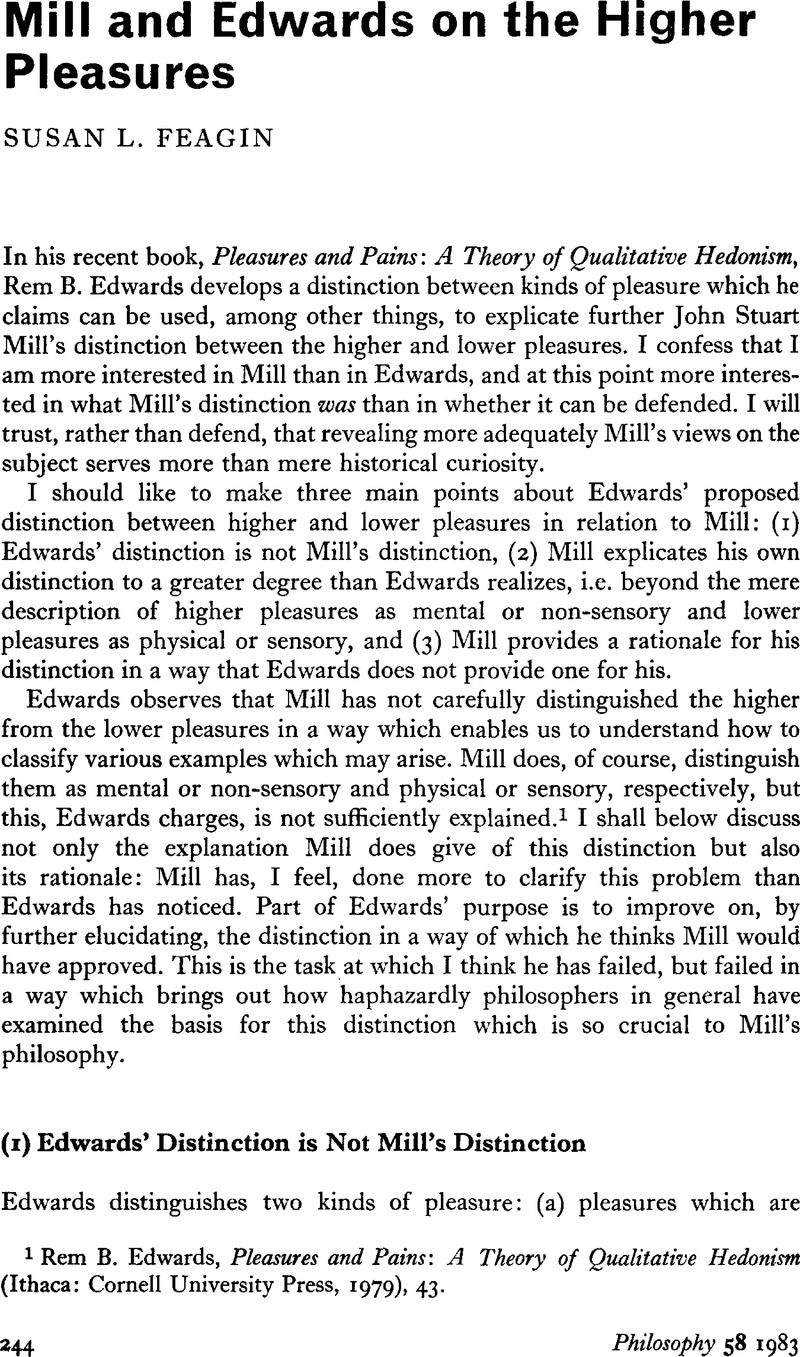Published online by Cambridge University Press: 30 January 2009

1 Rem B. Edwards, Pleasures and Pains: A Theory of Qualitative Hedonism (Ithaca: Cornell University Press, 1979), 43.
2 Edwards, p. 36.
3 Edwards, pp. 39-40.
4 Edwards, p. 36.
5 John Hospers, Human Conduct: An Introduction to the Problems of Ethics (New York: Harcourt, Brace, Jovanovich, 1961), 58; quoted by Edwards, PP. 38-39.
6 Ibid.
7 See J. S. Mill's notes to James Mill, Analysis of the Phenomena of the Human Mind, Vol. II, 2nd edn, notes by Bain, Findlater, and Grote (eds) with additional notes by Mill, (London: Longmans, Green, Reader, and Dyer, 1878), 255. Henceforth referred to as Analysis. All further references will be to J. S. Mill's notes.
8 Analysis, Vol. II, 241, 247.
9 Analysis, Vol. II, 247.
10 Analysis, Vol. II, 246.
11 Analysis, Vol. II, 241.
12 Analysis, Vol. II, 253, and ‘Bain's Psychology’ in The Collected Works of John Stuart Mill, Vol. XI, John M. Robson (ed.) (Toronto: University of Toronto Press, 1978), 363-364.
13 See Collected Works, Vol. XI, ‘The Gorgias’, 149-150, and ‘Grote's Plato’, 416.
14 Analysis, Vol. II, 255.
15 A System of Logic (VI, xii, 6) in Collected Works, Vol. VIII, 949. A slightly different trio appears in his ‘Inaugural Address to the University of St Andrews’, Dissertations and Discussions, Vol. IV (New York: Henry Holt and Company, 1874), 396-397, replacing the ‘prudential’ with the ‘intellectual’. And in his essay, ‘Bentham’, Dissertations and Discussions, I (New York: Haskell House Publishers Ltd, 1973 reprint of 1859 edition), 387, the third category is different still, denominated the ‘sympathetic’ or ‘lovable’ instead of the ‘prudential’. The ‘aesthetic’ and ‘moral’ categories are, however, invariant.